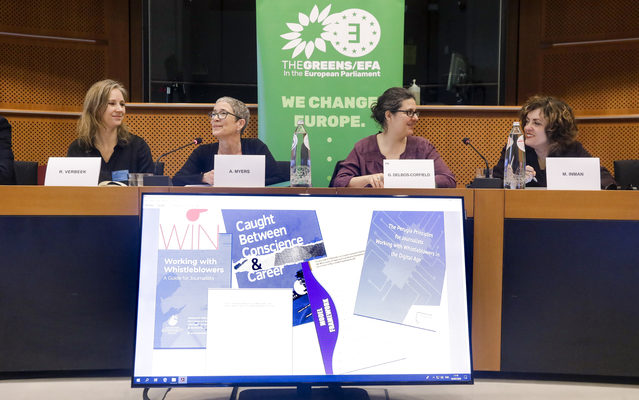EFJ published a transposition guide for journalists on the EU whistleblower directive

The European Federation of Journalists (EFJ) launched on 4 February 2020 in the European Parliament its new publication on the transposition of the EU whistleblower directive. The event was co-organised by Free Press Unlimited (FPU), Whistleblowing International Network (WIN) and hosted by MEP Gwendoline Delbos-Corfield (Greens/EFA). The author, International whistleblower lawyer Mary Inman, highlighted concrete recommendations on key articles.
Entitled “Implementing the new Whistleblower directive: a transposition guide for journalists“, it aims to provide journalists’ organisations with information on how the directive may affect their profession and highlights areas where further outreach efforts are needed at the national level.
In particular, Mary Inman warned against a couple of “missed opportunities” in the EU directive. To effectively protect all whistleblowers, the Members States are advised to:
- Minimize sectoral legislations
- Recognize precedence of certain fundamental rights over non-disclosure of information (such as national security)
- Expand and clarify the definition of facilitators to specifically name journalists and media organisations
- Allow whistleblowers to choose which reporting channel to use
- Ensure protection in case of anonymous reporting
“Journalists’ organisations in each EU Member State have an important role to play in the next two years. A number of sticky points that have been raised at the European level are likely to be put back on the table. Journalists will need to closely monitor the transposition process. This guide is meant to draw attention on the main concerns for the freedom of expression, the right to information and the protection of journalistic sources” said EFJ communications and project officer Camille Petit.
Member States have until December 2021 to transpose the directive into national law.
- Summary of the main points
- Full guide in French
- Full guide in English






